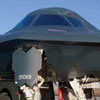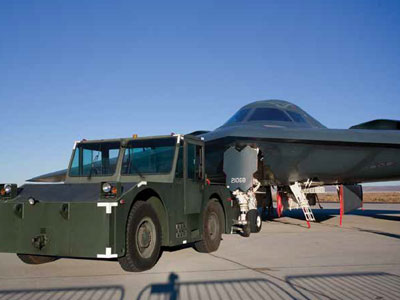
Providing Expertise
Facility and operations support for the military
- By Kent Jacocks
- Nov 01, 2013
 There is no greater form of security than the protection
afforded to United States citizens by our military forces
deployed across the globe. In a highly-diversified and
complex age of security, our armed forces provide the one
fundamental security measure shared by every citizen in the United
States: keeping American civilians out of harm’s way and allowing us
to enjoy freedom.
There is no greater form of security than the protection
afforded to United States citizens by our military forces
deployed across the globe. In a highly-diversified and
complex age of security, our armed forces provide the one
fundamental security measure shared by every citizen in the United
States: keeping American civilians out of harm’s way and allowing us
to enjoy freedom.
With their overall mission being to defend our nation against all
enemies, foreign and domestic, and to fight and win the nation’s wars,
our military forces deserve the finest support to enable them to accomplish
these missions in the most effective and expeditious manner
possible.
Day-to-Day Military Base Operations Support
When most people envision our deployed military, they only see our
troops in combat; however, most of their time is spent behind the
scenes within compounds and military bases. Whether domestic or
abroad, these facilities are very much like small towns. They need
operating headquarters, dining facilities, reliable electricity, housing,
recreational facilities, plumbing and water supply, properly working
vehicles, heating and cooling equipment, and medical facilities
and devices—to name a few. This requires military bases to have significant
facilities support including maintenance, repair, operations,
construction, engineering, energy services and much more to ensure
our men and women in uniform can operate at peak efficiency.
Therefore, it is our national responsibility to ensure they have these
facilities and services.
For any military installation, it is imperative that base operations
support and mission support services be provided in a world-class
manner, allowing our soldiers, Department of Defense (DoD) and
Non-Governmental Organizations (NGO) civilians as well as other
military staff to focus on the tasks at hand rather than worrying about
their facilities infrastructure.
Quite often, the military relies on specialists from the commercial
sector to provide these critical facility and operations support functions.
These service providers also play an important role assisting in
properly securing military bases, making providers experts in the security
protocols necessary for any military installation. Additionally,
the military relies on its facilities services providers to handle many
logistical necessities including:
- Designing, developing, acquiring and maintaining services,
supplies and other materials;
- Personnel transportation;
- Construction and renovation;
- Medical and healthcare support services;
- Administrative support services;
- Equipment maintenance and operation;
- Utilities operation and maintenance; and
- Selective training.
Securing U.S. Military Bases
Providing these facility services is a critical job, but not just any provider
is eligible to step onto a military base and begin working. The
U.S. military requires civilian workers to meet rigorous background
checks, while service providers must apply for, be granted and maintain
required security clearance levels in the form of a facility security
clearance (FCL) in order to work on DoD contracts or with other
government agencies.
There are four basic security clearance levels for service companies
and their personnel: unclassified, confidential, secret and top
secret. Maintaining the highest level of security clearance with the
DoD, top-secret facility clearance requires review on a periodic basis.
Employees must also be familiar with federal regulations for the protection
of classified information, and service providers must employ
a security program to comply with the DoD’s extensive requirements.
For example, civilians must pass not only DoD or other government
agency background checks, but they must also pass an in-depth
background check by the service provider, such as ABM Government
Services. In fact, some of the background checks employed within
ABM have been widely used by the rest of the company for checks
on many of its other 100,000 plus employees during the on-boarding
process. In order to obtain badge credentials to work on a military
base as a civilian, ABM workers undergo a five-part background
check, including a/an:
- DoD or other government agency database background check,
and verification of individual clearance level;
- 10-year criminal background check on the individual;
- Credit check;
- Drug screening through urinalysis; and
- Employment history through human resources, and verification
of education, training and certificates.
Once these requirements are met, civilians obtain badges that are
reviewed at checkpoints across military bases to gain entry into and
out of military installations.
Companies must be vigilant in employing trustworthy and honorable
individuals at these installations. The military cannot have individuals
working at bases, hospitals and various other jobs—often
very close to the front lines and with access to classified information—
who have not been properly vetted. The risks are simply too
great. Therefore, the ability to employ individuals with proper clearance
who meet sophisticated background checks is key to securing
military bases.
Linguists Play an Important Role in Security
In recent years, there has been an increased need for military-trained
linguists to support our troops in a number of mission-critical capacities,
whether in humanitarian, peacekeeping, contingency or
combat zones. Translation, interpretation and other related language
services are necessary for our troops to function in non-Englishspeaking
regions, particularly in the Middle East where U.S. troops
are actively engaged.
To meet this growing demand, in 2011, the Army Intelligence and
Security Command (INSCOM) unveiled the $9.7 billion Defense
Language Interpreting and Translation Enterprise (DLITE) contract
that was awarded to six providers, with ABM being among the recipients.
ABM has been tasked with a number of interpretation and
translation orders since.
As it relates to security, linguists often play a vital role in maintaining
strong relations between U.S. troops and those native to wherever
they are deployed, be it local government officials, tribal chiefs
or even enemy forces during a negotiation. Unskilled translators can
cause confusion and consternation, which endangers the lives of our
military staff. Even worse, there are hostile translators who seek to
actively sabotage a communication or negotiation.
Learning from the Past
ABM also is helping the military through leadership training via its
“Battle Staff Rides” program, a series of training seminars that take
place on actual battlefields, giving valuable insight into the physical,
emotional and intellectual challenges that took place during a particular
battle. Breaches in security have turned the tide on many battles
due to stolen or lost documents, spy infiltrations, stolen munitions
and cyber attacks.
These “rides” are executed by ABM Government Services’ battlefield
historians and have become a powerful method for government
clients and military commanders to train their leaders in strategy,
tactics and leadership as they apply to military and civilian businesses.
Battle Staff Rides provides a format for understanding the human
element of combat along with the successes and failures of various
military leaders when faced with specific dilemmas.
To date, ABM has trained more than 33,000 government staff
through the program and has begun making these training seminars
available to corporations.
This article originally appeared in the November 2013 issue of Security Today.